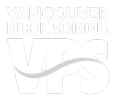On March 15, a confrontation between three students at a Vancouver Public Schools middle school basketball tournament escalated into a disturbance that involved approximately 50 students, leading to the response of more than 30 police officers.
The issue reached a tipping point when several students assaulted district security officers as they attempted to remove a student from the school because of a confrontation with two other students. The security officers were hit, pushed and punched by students.
Law enforcement personnel on the scene determined that several students were engaged in criminal conduct. Ultimately nine students were arrested for charges relating to assault and 28 students (including the nine arrested) were emergency expelled from seven schools for actions ranging from assault to inciting and failure to disperse.
The district will hold accountable those who behave in ways that infringe on the rights of others. When determining disciplinary measures, the district follows state law and district policy. While disciplinary measures are sometimes necessary, we also know that any gap in instructional time can hinder learning. Therefore, we’ve established processes for students who have been suspended or expelled to continue their learning; demonstrate accountability; and re-enter the classroom in a responsible, productive manner.
Disciplinary facts
Emergency expulsions are up to 10 days to allow the school to investigate and determine final disciplinary action. There is a process in which parents and/or students may appeal any disciplinary action at any point. Outcomes of emergency expulsions can include short-term or long-term suspension, expulsion or they can be rescinded. Expulsions last for one academic term: 60 days for middle and elementary students (5th-grade only); 90 days for high school students.
Teachable moments
Following a suspension or expulsion, the family, student, school and a district administrator work together to create a re-engagement plan. The plan, based on the student’s strengths and goals, sets a path for the student to successfully return to school. If the family or student feels that the district hasn’t set appropriate placement and supports, they can request a formal hearing, which would involve an outside hearing officer.
For example, many of the students who were emergency expelled have returned to school. The re-engagement plan for these students includes:
- Students working with counselors to process the incident and their feelings about what happened.
- Depending on progress, students can return to their normal school schedule or continue to work with counselors throughout the day.
- Counselors will continue to check in with their students throughout the week.
- Re-engagement will continue to allow students to catch up on missed school work.
- Students and police school resource officers will meet to talk through the issues.
Safe and supportive environments
VPS strives to provide safe and supportive schools for all of its students. Our employees work hard to ensure that our schools are inviting, respectful and emotionally safe learning environments for all students and adults.
For several years, the district has focused on efforts to be proactive in preventing situations and behavior that could lead to disciplinary measures. One approach used widely throughout the district is Positive Behavior and Intervention Supports. District employees have been trained in PBIS strategies, which allow staff members and families to identify interventions and supports to help students who are struggling.
Often the district includes the use of restorative practices, which are strategies to help re-engage students in the school community after they have been excluded for disciplinary reasons. The strategies focus on meaningful accountability to repair the harm that’s been done with those involved and to help everyone move forward, including the adults.
School personnel are aware of the many complicated issues at play that can cause students to act out. There are many ways the district works to reduce barriers and stress for students and families so students can be successful. Family-Community Resource Centers coordinate resources and supports to help meet families’ basic and emergent needs. Our schools work to engage families in their children’s school through family nights and other opportunities to welcome parents and enable them to participate in their child’s education.
VPS also focuses on social emotional learning to empower students in the areas of self-awareness, self-management, social awareness, relationship skills and responsible decision-making. Building on students’ social emotional learning allows them to achieve self-confidence, manage stress, understand the perspectives of others, learn empathy, negotiate conflict constructively and ask for help when needed.
